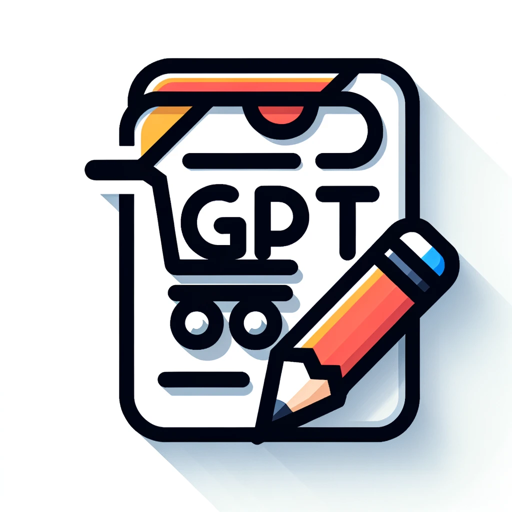Website Scraper-text extraction from websites
AI-powered web content extraction tool.
A GPT that extracts and saves website text to a file.
Scrape this website for me:
I need the text from this page:
Can you save this webpage's text?
Extract text from this URL:
Related Tools
Load More
Scraper
Scrape text, images, and urls from websites.

Cyber Scraper: Seraphina (Web Crawler)
🐍 I'm a Python Web Scraping Expert, skilled in using advanced frameworks(E.g. selenium) and addressing anti-scraping measures 😉 Let's quickly design a web scraping code together to gather data for your scientific research task 🚀

Web Crawler
Web Searches using Information Retrieval theory. Processes input and generates three search strings for a more comprehensive result.

URL Data Scraper
Rapidly get text, PDF, or images from any url.
Web Scrap
Simulates web scraping, provides detailed site analysis.
Scraper
Scrape data from any website links to analyze info, live.
20.0 / 5 (200 votes)
Introduction to Website Scraper
Website Scraper is a specialized tool designed to extract and retrieve textual content directly from websites without altering, summarizing, or interpreting it. Its primary function is to capture the text as it appears on a webpage and present it in a simple, unaltered format, typically in a .txt file. This tool is ideal for users who need precise, verbatim text data from online sources for purposes such as research, archiving, content analysis, or compliance monitoring. Website Scraper operates by accessing specified URLs, extracting the visible text, and saving it in a structured format, which allows users to efficiently collect data from the internet. Examples of its use include retrieving academic papers from online journals, collecting product descriptions from e-commerce sites, or capturing content for sentiment analysis in social media posts.

Main Functions of Website Scraper
Text Extraction
Example
A researcher needs to gather information from multiple scientific articles hosted on different websites. Website Scraper can visit each URL, extract the article text, and save it in a .txt file for easy reference.
Scenario
This function is particularly useful for academic researchers who require access to large volumes of data from online publications. By using Website Scraper, they can automate the process of collecting content, ensuring accuracy and efficiency without the need to manually copy and paste text.
Content Archiving
Example
An organization wants to maintain an archive of all its published online content for compliance and auditing purposes. Website Scraper can systematically download and save the content from their website to ensure it is archived in a structured, accessible format.
Scenario
This is especially beneficial for companies that need to keep a record of their online presence, such as financial institutions or healthcare providers, where accurate record-keeping is crucial for regulatory compliance. Website Scraper ensures that all content is captured accurately and stored for future reference.
Data Analysis Preparation
Example
A marketing analyst wants to analyze customer reviews from an e-commerce website to understand consumer sentiment. Website Scraper can extract all the review texts and save them in a format suitable for text analysis software.
Scenario
This function is ideal for data scientists and marketing professionals who need raw text data for natural language processing (NLP) tasks. By extracting reviews, comments, or social media posts, they can analyze patterns, sentiment, and other insights without manual intervention, saving time and reducing errors.
Ideal Users of Website Scraper
Academic Researchers
Researchers in academia often need access to large amounts of text data for literature reviews, studies, or qualitative research. Website Scraper provides them with a reliable tool to gather data directly from online journals, articles, and other web resources, ensuring they have accurate and unmodified content for their work. This tool helps streamline the research process, making data collection more efficient and less prone to human error.
Data Analysts and Scientists
Data analysts and scientists working in fields such as marketing, finance, or social sciences benefit from using Website Scraper to collect large datasets of text for analysis. Whether it's scraping product reviews for sentiment analysis, capturing news articles for trend analysis, or gathering social media posts for behavioral studies, Website Scraper allows these professionals to efficiently collect and prepare the necessary data, enhancing their ability to draw meaningful insights and make informed decisions.

How to Use Website Scraper
Step 1
Visit aichatonline.org for a free trial with no login required; ChatGPT Plus is also not needed.
Step 2
Input the URL of the website or specify the section of the page you wish to scrape. Make sure the content is publicly accessible.
Step 3
Use the tool's browsing capability to extract the text directly. The scraper will capture content exactly as it appears on the webpage.
Step 4
Download the scraped text as a .txt file. The content will be unaltered and formatted for easy reading or further analysis.
Step 5
For optimal results, use this tool to scrape academic articles, research papers, or any long-form content that needs to be preserved for reference.
Try other advanced and practical GPTs
website summary
AI-powered summaries at your fingertips

Cognitive Psychology Guide
AI-Powered Insights for Cognitive Understanding

SmartTeach AI
AI-Powered Teaching Materials Made Easy

Amazon Explorer
Unlock smarter shopping with AI insights.

Tattoo Designer
AI-powered custom tattoo creation.

Online Ai image editor | Free Online Photo Editor
AI-Powered Image Editing Made Simple

WebsiteAnalyzer
Enhance Your Website with AI Insights

Market Research and Competitive Analysis GPT
AI-powered insights for market research.

E-Commerce Product Listing Description Generator
AI-Driven Descriptions for Faster Sales

Thumbnail Maker - 4.0 ★
AI-driven thumbnails that boost engagement

Extended Essay Grader-GPT(IB Diploma EE)
AI-powered Extended Essay feedback and grading.

Relationship Advice
AI-powered insights for better relationships

- Academic Research
- Web Scraping
- Text Analysis
- Data Collection
- Content Archiving
Q&A: Common Questions About Website Scraper
Can the tool scrape content from password-protected pages?
No, Website Scraper can only access and extract content from publicly available pages. It cannot bypass password-protected or paywalled sites.
Is there any limit to the amount of text I can scrape?
There is no specific text limit. However, the tool is optimized for standard web pages, and some websites may have content that’s dynamically loaded or restricted by design.
What file format will the scraped content be saved in?
The content is saved as a .txt file, ensuring simplicity and compatibility across different devices and applications.
Can I scrape multiple pages at once?
Currently, scraping is limited to one webpage at a time, but you can repeat the process for as many pages as you need.
How accurate is the extracted text compared to the original webpage?
The text extraction is highly accurate and mirrors the original content exactly as it appears, preserving structure and formatting.